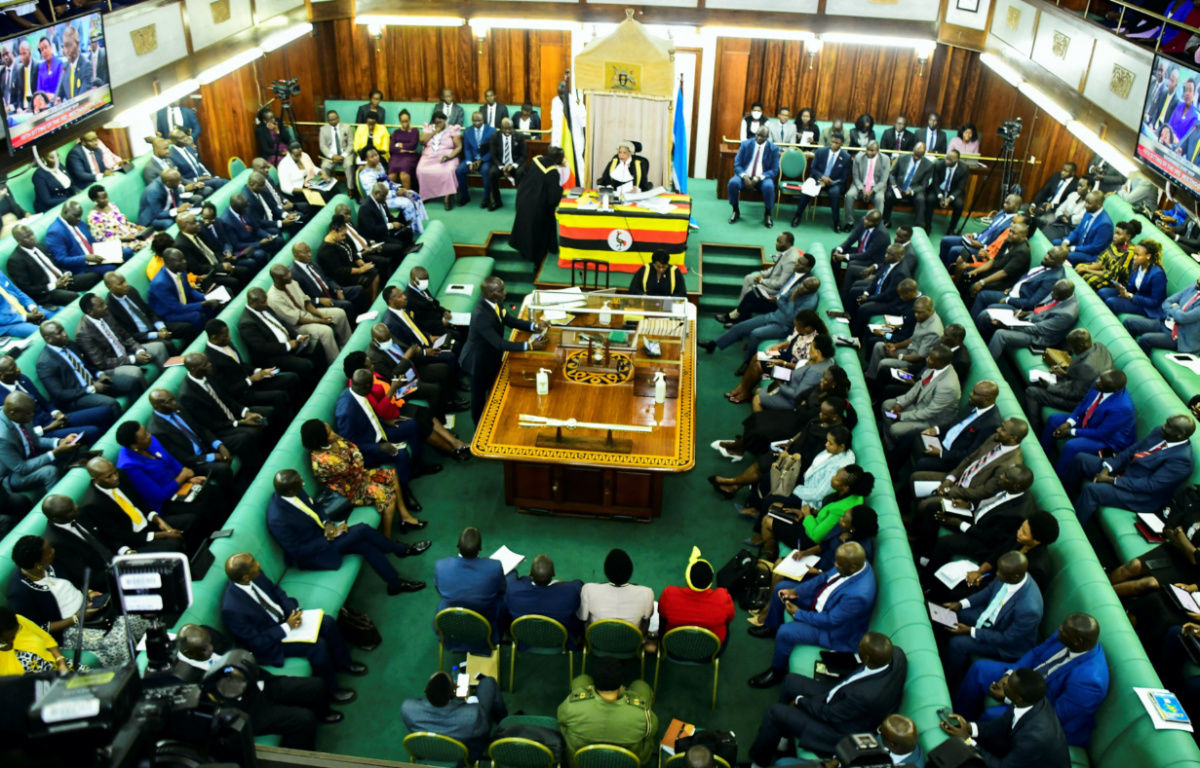Kampala, Uganda
The United Nations High Commissioners for Human Rights, Volker Turk, has asked President Yoweri Museveni of Uganda not to sign the anti-homosexuality bill that was passed by the country’s parliament on Tuesday.
The bill that proposes a death penalty for the offence of aggravated homosexuality, life imprisonments for the offence of homosexuality, up to 14 years for attempted homosexuality and 20 years for promoting homosexuality awaits the President’s signature anytime to become law.

Ugandan legislators participate in the debate of the Anti-Homosexuality bill, which proposes tough new penalties for same-sex relations during a sitting at the Parliament building in Kampala, Uganda March 21, 2023. REUTERS/Abubaker Lubowa
In a statement released on Wednesday, Turk said the adoption of draconian new legislation targeting lesbian, gay, bisexual and transgender people in Uganda was devastating and deeply disturbing, and called on Museveni not to sign it into law.
“The passing of this discriminatory bill-probably among the worst of its kind in the world-is a deeply troubling development,” the High Commissioner said.
“If signed into law by the President, it will render lesbian, gay, bisexual and transgender people in Uganda criminals simply for existing, for being who they are,” he said, “It could provide carte blanche for the systematic violation of nearly all their human rights and serve to incite people against each other.”
The UN Rights chief also said the bill confuses consensual and non-consensual relations and that whereas the former should never be criminalised, the latter require evidence-based measures to end violence in all its forms – including against children, no matter the gender or sexual orientation of the perpetrator.
“The bill will be a massive distraction from taking necessary action to end sexual violence,” Turk said. He added: “Not only does it conflict with Uganda’s own constitution stipulating equality and non-discrimination for all-also runs counter to the country’s international legal obligations on human rights and political commitment on sustainable development and actively puts people’s rights, health and safety at grave risk.”
According to the High Commissioner, the adaptation of this legislation comes in the wake of a rise in homophobic rhetoric among politicians, religious leaders, and other sections of Ugandan society that further aggravated the safety risks for lesbian, gay, bisexual and transgender people.
Citing a civil society group, he said that in February, 2023, more than 110 LGBTQI +people in Uganda reported incidents, including arrests, sexual violence, evictions and public stripping.
Amng other international reactions, US Secretary of State Antony Blinken said on Wednesday the law would undermine fundamental human rights and “reverse gains in the fight against HIV/AIDS” and urged authorities to reconsider implementation of the law.
Few civil society organisations and religious institutions in Uganda have voiced any objections to the bill.
It is not clear whether President Museveni has the appetite to sign the bill into law particularly given the possible backlash from Western donor nations.
In 2014, Museveni did assent to the 2009 Anti-Homosexuality Bill, which had life sentences for those involved in same–sex marriages and a 14-year jail sentence for the first-time offenders, although this was later squashed by the Constitutional Court on grounds that there was no quorum in parliament as it was being passed.
The current bill comes after the Archbishop of the Anglican Church of Uganda, Dr Stephen Kaziimba Mugalu, issued a statement in February condemning the Church of England for voting to bless civil marriages of the same-sex couples and asked its leadership to step out of the Anglican Communion.
We rely on our readers to fund Sight's work - become a financial supporter today!
For more information, head to our Subscriber's page.
While homosexuality in Uganda is already criminalised under colonial-era laws, supporters of the new legislation argue that the existing laws are too weak to contain the practice.
The Anti-Homosexuality Bill 2023 was reintroduced in February to parliament by MP Asuman Basalirwa and quickly garnered the support of the Speaker of Parliament, Anita Among, and many other MPs.
While tabling the bill, Basalirwa said it would protect Uganda church culture and the legal, religious and traditional family values of Ugandans from the acts that were likely to promote sexual promiscuity in the country,
In showing her support for the bill, Among decried what she termed as “escalating same-sex orientation and homosexuality elements in the country” and promised that the House would draft and pass a tough law to curtail the practice.
Only one member of parliament, Fox Odoi, a lawyer by profession and former legal aide to President Museveni, spoke strongly against the bill during its passing. He said the bill contravened the established international and regional human rights standards.
Rights advocacy group Human Rights Watch had previously warned that the bill if passed would violate Ugandans’ rights.
– With reporting by ELIAS BIRYABAREMA/Reuters






